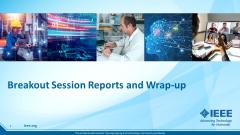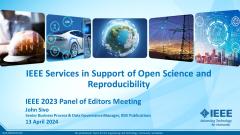Every power electronics engineer can benefit from knowledge of advanced control theory, power electronics, and the seamless integration of both to address fundamental challenges in energy and power systems. Dr. Qing-Chang Zhong, Fellow of IEEE and IET, holds the Max McGraw Endowed Chair Professor in Energy and Power Engineering at Department of Electrical and Computer Engineering, Illinois Institute of Technology, Chicago, USA. He obtained a PhD degree in 2000 from Shanghai Jiao-Tong University and another PhD degree in 2004 from Imperial College London. Having been recognized as a Distinguished Lecturer for the IEEE Control Systems Society, the IEEE Power Electronics Society and the IEEE Power and Energy Society, he is a world-leading multidisciplinary expert in control, power electronics and power systems. Before joining Illinois Institute of Technology, he was the Chair Professor in Control and Systems Engineering at The University of Sheffield, UK, where he built up a $5M+ research lab dedicated to the control of energy and power systems and attracted the support of Rolls-Royce, National Instruments, Texas Instruments, Siemens, ALSTOM, Turbo Power Systems, Chroma, Yokagawa, OPAL RT and other organizations. He (co-) authored three research monographs, including Control of Power Inverters in Renewable Energy and Smart Grid Integration (Wiley-IEEE Press, 2013). His fourth book on the architecture and technical routes of next-generation smart grids based on the synchronization mechanism of synchronous machines will be published by Wiley-IEEE in 2017. He is an Associate Editor for leading journals in control and power electronics, including IEEE Trans. on Power Electronics, IEEE Trans. on Industrial Electronics, IEEE Trans. on Automatic Control, and IEEE Trans. on Control Systems Technology. His current research focuses on advanced control theory, power electronics, and the seamless integration of both to address fundamental challenges in energy and power systems.
Every power electronics engineer can benefit from knowledge of advanced control theory, power electronics, and the seamless...
 Cart
Cart Create Account
Create Account Sign In
Sign In



